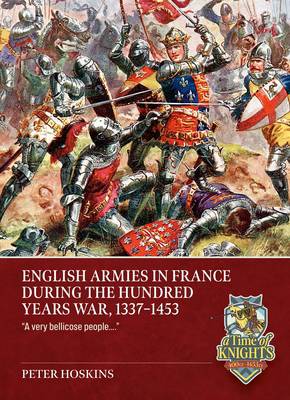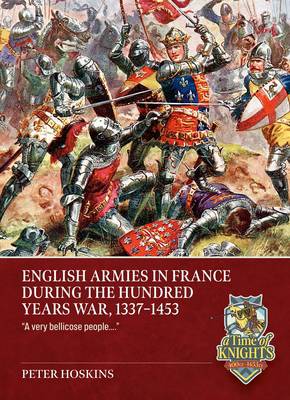
Bedankt voor het vertrouwen het afgelopen jaar! Om jou te bedanken bieden we GRATIS verzending (in België) aan op alles gedurende de hele maand januari.
- Afhalen na 1 uur in een winkel met voorraad
- In januari gratis thuislevering in België
- Ruim aanbod met 7 miljoen producten
Bedankt voor het vertrouwen het afgelopen jaar! Om jou te bedanken bieden we GRATIS verzending (in België) aan op alles gedurende de hele maand januari.
- Afhalen na 1 uur in een winkel met voorraad
- In januari gratis thuislevering in België
- Ruim aanbod met 7 miljoen producten
Zoeken
English Armies in France During the Hundred Years War, 1337-1453
"A Very Bellicose People...."
Peter Hoskins
€ 69,45
+ 138 punten
Omschrijving
"In my youth, those Britons called English were taken as the most timid of barbarians. Today they are a very bellicose people." So wrote the Italian poet Petrarch after the victory of the Black Prince Battle of Poitiers in 1356. English Armies in France during the Hundred Years War, 1337-1453: "A Very Bellicose People..." examines the English armies which established such a formidable reputation in France during the Hundred Years War. It deals with English strategy and tactics during the war, the raising of armies, the men who fought with the armies, the composition of expeditionary forces and garrisons, the weapons used, and the maintenance of discipline. The place of peers, men-at-arms, archers and other soldiers is explored, as is the evolution of the composition of armies, with major expeditionary armies and selected garrisons taken as examples, as the proportion of archers steadily increased throughout the war. The English system of recruitment through indentured service, which in the early years of the war produced much more professional armies than the French system which relied on an essentially feudal system, is discussed, as are the French reforms, notably those of Charles VII, which eroded the English advantage and contributed significantly to the final English defeat at Castillon in 1453.
Specificaties
Betrokkenen
- Auteur(s):
- Uitgeverij:
Inhoud
- Aantal bladzijden:
- 160
- Taal:
- Engels
- Reeks:
Eigenschappen
- Productcode (EAN):
- 9781804519974
- Verschijningsdatum:
- 15/06/2026
- Uitvoering:
- Paperback
- Formaat:
- Trade paperback (VS)
- Afmetingen:
- 178 mm x 248 mm

Alleen bij Standaard Boekhandel
+ 138 punten op je klantenkaart van Standaard Boekhandel
Beoordelingen
We publiceren alleen reviews die voldoen aan de voorwaarden voor reviews. Bekijk onze voorwaarden voor reviews.









